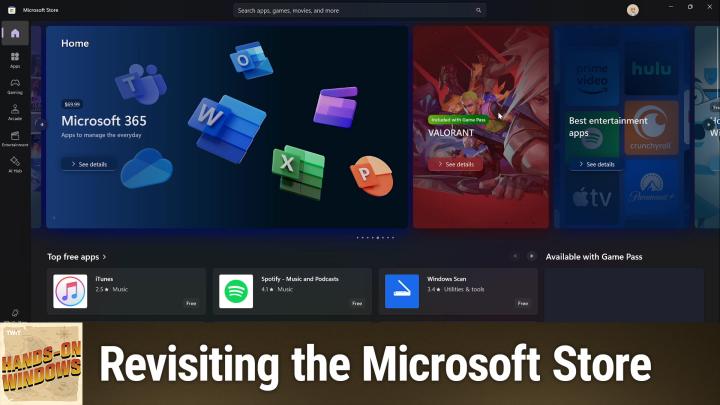Microsoft Store in 2024: A Fresh Look at Windows' App Marketplace
AI created, human edited.
The Microsoft Store has come a long way since its rocky beginnings as the Windows Store in Windows 8. In a recent episode of the Hands-On Windows podcast, host Paul Thurrott revisits this often-overlooked feature of Windows 11, highlighting its significant improvements and why power users should give it another chance.
Key Takeaways:
- Expanded App Availability The Microsoft Store now offers a diverse range of applications, moving beyond its initial limitations of Metro and UWP apps. Users can find and install almost any type of Windows application, including traditional desktop software.
- Liberal Licensing Policies Most apps purchased through the Microsoft Store can be installed on up to 10 devices, offering greater flexibility compared to standalone purchases. However, some developers may opt out of this policy.
- New Features
- Arcade section: Play casual games instantly without downloads
- AI Hub: Explore AI-powered apps, many leveraging cloud computing
- Improved app management through the Library view
- Installation Best Practices Thurrott recommends checking the Microsoft Store first when installing new apps, taking advantage of its centralized updates and generous licensing.
- Alternative Installation Methods For power users, Thurrott teases an upcoming episode on using the Windows Package Manager (winget) for efficient batch app installations.
The Microsoft Store in 2024 presents a compelling case for Windows users to reconsider their app installation habits. With its expanded catalog, user-friendly interface, and integration with Windows 11, it's becoming an increasingly valuable tool for discovering and managing software on your PC.
Stay tuned to Hands-On Windows, airing every Thursday, for more in-depth Windows tips and tricks.
